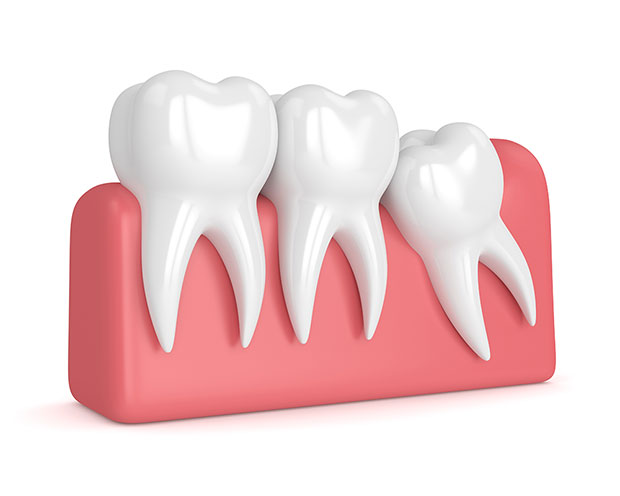What Are Wisdom Teeth?
“Wisdom teeth” is the layman’s term for the 3rd and last molars in the mouth. They typically begin to erupt anywhere between 16-20 years old. There are four wisdom teeth in a full set, one in each quadrant, but for some patients, there may be less than 4, and on rare occasions, there are none at all. In a mouth with all teeth present, including wisdom teeth, there are 32 teeth total.
Why Might They Require Extraction?
In many cases, it is recommended that the wisdom teeth be removed. This may be for several reasons. In most cases, the wisdom teeth just don’t fit. If the molars don’t have enough space to erupt entirely into the mouth to be functional, they are considered “impacted.” Impacted wisdom teeth can lead to inflammation and infection because they are difficult to access and clean. In particular, when a wisdom tooth has poked through the gum but is unable to erupt further, bacteria from the mouth can get trapped inside the socket, leading to infection. Wisdom teeth can also form from their tooth buds at the wrong angle. They may be horizontal or tipped into the 2nd molars instead of straight up and down. When this is the case, there may also be damage to the 2nd molars if the wisdom teeth are not extracted. Impacted wisdom teeth can lead to inflammation, infection, cavities and jaw pain.
How Are They Extracted?
Depending on the extraction’s complexity, you will either see your regular dentist or an oral surgeon for the procedure. Some factors that play a vital role in the procedure’s complexity include if they are above or below the gum line, what angle they are at, and how close to the nerve they are. If you are nervous about the procedure, an oral surgeon can use stronger sedative medications to either put you to sleep or relax you. Some sedative medications include nitrous oxide (laughing gas), oral sedatives or general anesthetic. During the procedure, several different tools will be used to remove the teeth. If the teeth are underneath the gum, a small incision will be made and stitched up afterward. These stitches dissolve away on their own over time. You can expect to experience a small amount of discomfort for just a few days later.
If you believe you have an impacted wisdom tooth/teeth or have any questions about the procedure, we encourage you to contact us today to schedule an appointment.

